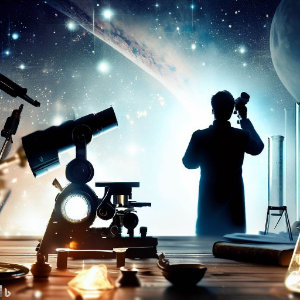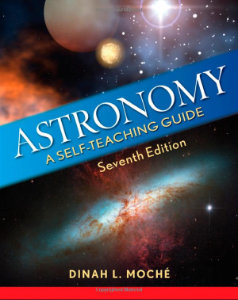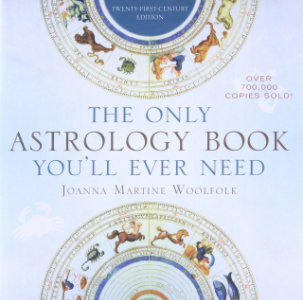
Astronomy and astrology are two fields of study that have been intertwined since the dawn of civilization. The ancient Greeks, Babylonians, and Egyptians all practiced some form of astronomy and astrology, using the positions and movements of celestial bodies to understand the world around them and to make predictions about the future.
In fact, the two fields were once considered to be one and the same. The Latin term “astrologia” referred to both the study of celestial bodies and their physical properties, as well as the use of astronomical calculations for divination and the interpretation of omens.
However, over time, the two practices began to diverge, with astronomy becoming more focused on understanding the physical properties of celestial bodies, while astrology became more concerned with using astronomical calculations for divination and the interpretation of omens.
The Late Middle Ages saw a significant shift in the way astronomy and astrology were viewed. The rise of Christianity, coupled with the decline of the Roman Empire, led to a shift away from the mystical practices of astrology and towards a more rational, scientific approach to understanding the universe.
The Enlightenment of the 18th century helped, even more, to establish astronomy as a legitimate scientific discipline, separate from the more mystical practices of astrology. Today, astronomy and astrology are considered to be two separate fields of study, with distinct methods and goals, but they continue to share a common interest in the movements and positions of celestial bodies.
What is Astronomy?
Astronomy is the science that studies celestial objects and phenomena beyond the Earth’s atmosphere. It has a long and fascinating history that goes back thousands of years. From ancient civilizations to modern-day space exploration, astronomy has played a critical role in our understanding of the universe around us.
The history of astronomy can be traced back to ancient civilizations such as the Babylonians, Egyptians, and Greeks. They were the first to observe and record the movements of celestial objects in the sky, including the Sun, Moon, and stars. They used simple tools such as the naked eye, sundials, and water clocks to measure the positions of these objects.
One of the most famous astronomers of ancient times was Ptolemy. He was a Greek astronomer who lived in Egypt in the 2nd century AD. He developed a geocentric model of the solar system, where the Earth was at the center, and all other celestial objects revolved around it. This model was widely accepted for many centuries and influenced astronomy until the 16th century.
During the Renaissance, astronomy went through a period of rapid development. Nicolaus Copernicus, a Polish astronomer, challenged Ptolemy’s geocentric model and proposed a heliocentric model, where the Sun was at the center of the solar system, and all other planets orbited around it. This idea was revolutionary at the time and sparked a scientific revolution that would change the course of astronomy forever.
Throughout history, many astronomers have made significant contributions to the field of astronomy. Galileo Galilei, an Italian astronomer, is one of the most famous astronomers of all time. He is credited with the invention of the telescope, which he used to observe the Moon, Sun, and other celestial objects. He also discovered the four largest moons of Jupiter, which are now known as the Galilean moons.
Isaac Newton, an English physicist, is another prominent astronomer. He developed the laws of motion and gravity, which revolutionized the field of astronomy. His work laid the foundation for modern-day astronomy and space exploration.
In the 20th century, astronomer Edwin Hubble made a groundbreaking discovery by observing that distant galaxies were moving away from each other, which led to the discovery of the expanding universe. This discovery changed our understanding of the universe and led to the development of the Big Bang theory.
Astronomy has made significant contributions to our understanding of the universe around us. It has helped us to answer fundamental questions such as how the universe began, how it evolved over time, and what its ultimate fate will be.
One of the most significant contributions of astronomy is the discovery of planets beyond our solar system. In the past few decades, astronomers have discovered thousands of exoplanets, which are planets that orbit stars other than the Sun. This discovery has led to a better understanding of how planets form and how common they are in the universe.
Astronomy has also helped us to understand the origins of life on Earth. By studying the chemical composition of stars and planets, astronomers have been able to determine that the elements necessary for life are present throughout the universe. This has led to the development of the theory that life may exist on other planets.
In addition to these discoveries, astronomy has also led to the development of new technologies that have had a significant impact on our daily lives. Satellites, GPS, and weather forecasting are just a few examples of technologies that have been developed as a result of astronomy.
What is Astrology?
Astrology is a field of study that seeks to understand the influence of celestial bodies on human affairs and the natural world. The practice has a long and rich history, dating back to ancient times when people observed the stars and planets and sought to understand their significance.
In ancient times, astrology was closely tied to religion and mythology. Many cultures believed that the movements of the planets and stars were controlled by gods and goddesses and that studying the heavens could reveal important insights into human affairs. For example, the ancient Babylonians developed a complex system of astrology that was used to predict the fortunes of kings and empires.
Over time, astrology evolved into a more sophisticated and scientific practice. In the Middle Ages, astrologers developed complex charts and calculations to predict the movements of the planets and the future events they might portend. These astrologers believed that the positions of the planets at the time of a person’s birth could reveal important insights into that person’s character, destiny, and life path.
Today, astrology remains a popular and influential practice, with millions of people around the world using it to gain insight into their lives and relationships. Basic beliefs in astrology include the notion that the positions of the planets and stars at the time of a person’s birth can reveal important information about that person’s character, strengths, and weaknesses. Astrologers also believe that the movements of the planets and stars can influence events on Earth and that studying these movements can help predict future trends and events.
There are many different methods of using astrology, including horoscopes, birth charts, and astrological consultations. Horoscopes are the most common form of astrology and are based on the position of the sun, moon, and planets at the time of a person’s birth. These horoscopes are often used to provide general insights into a person’s personality, as well as predictions about future events.
Birth charts are a more complex form of astrology that involve calculating the positions of the planets and stars at the exact moment of a person’s birth. These charts can provide detailed insights into a person’s character, strengths, and weaknesses, as well as predictions about future events. Astrological consultations are another popular method of using astrology and involve meeting with an astrologer to discuss one’s birth chart and gain insights into one’s life path and purpose.
Throughout history, there have been many prominent astrologers who have made important contributions to the field. One of the most famous astrologers in history was Galileo Galilei, who is best known for his contributions to astronomy but was also a skilled astrologer like Ptolemy and Kepler before him. Galileo not only believed in astrology but used his knowledge of astrology to create horoscopes for himself and others, as well as teaching the subject. He was even investigated for practicing “fatalistic astrology” by the Inquisition in 1604.
While there is no real evidence, there is some speculation that Sir Isaac Newton had at least a passing interest in astrology as he had several books on the subject in his personal library.
In more recent times, astrologers like Carl Jung, Dane Rudhyar, and Liz Greene have made important contributions to the field. Jung was particularly interested in the psychological aspects of astrology, and he believed that studying the positions of the planets at the time of a person’s birth could reveal important insights into that person’s psyche and unconscious mind. Rudhyar and Greene both developed new approaches to astrology that emphasized the importance of personal growth and self-discovery.
Despite its long and rich history, astrology remains a controversial and divisive practice. Many scientists and skeptics dismiss astrology as a pseudoscience, arguing that there is no scientific evidence to support its claims. Others, however, believe that astrology can provide valuable insights into human affairs and the natural world and that it has an important role to play in our understanding of the universe.
The Differences Between Astronomy and Astrology
While astronomy and astrology share a common interest in the movements and positions of celestial bodies, they are two very different fields of study.
One of the key differences between the two is their focus. Astronomy is focused on understanding the physical properties and behavior of celestial objects, while astrology is focused on the influence of celestial bodies on human affairs and natural phenomena.
Another key difference is their methods. Astronomy uses a variety of scientific tools and techniques, such as telescopes and computer simulations, to study celestial objects. Astrology, on the other hand, relies on a more intuitive approach, using symbolism and interpretation to understand the positions and movements of celestial bodies.
Perhaps the most important difference between astronomy and astrology is their goals. Astronomy is focused on understanding the universe and our place in it, while astrology is focused on understanding ourselves and our place in the world.
While astronomy and astrology may seem very different, they both have a long and fascinating history. From the ancient civilizations of Greece, Babylon, and Egypt to the modern scientific discoveries of today, the study of celestial bodies has always captivated the human imagination.



